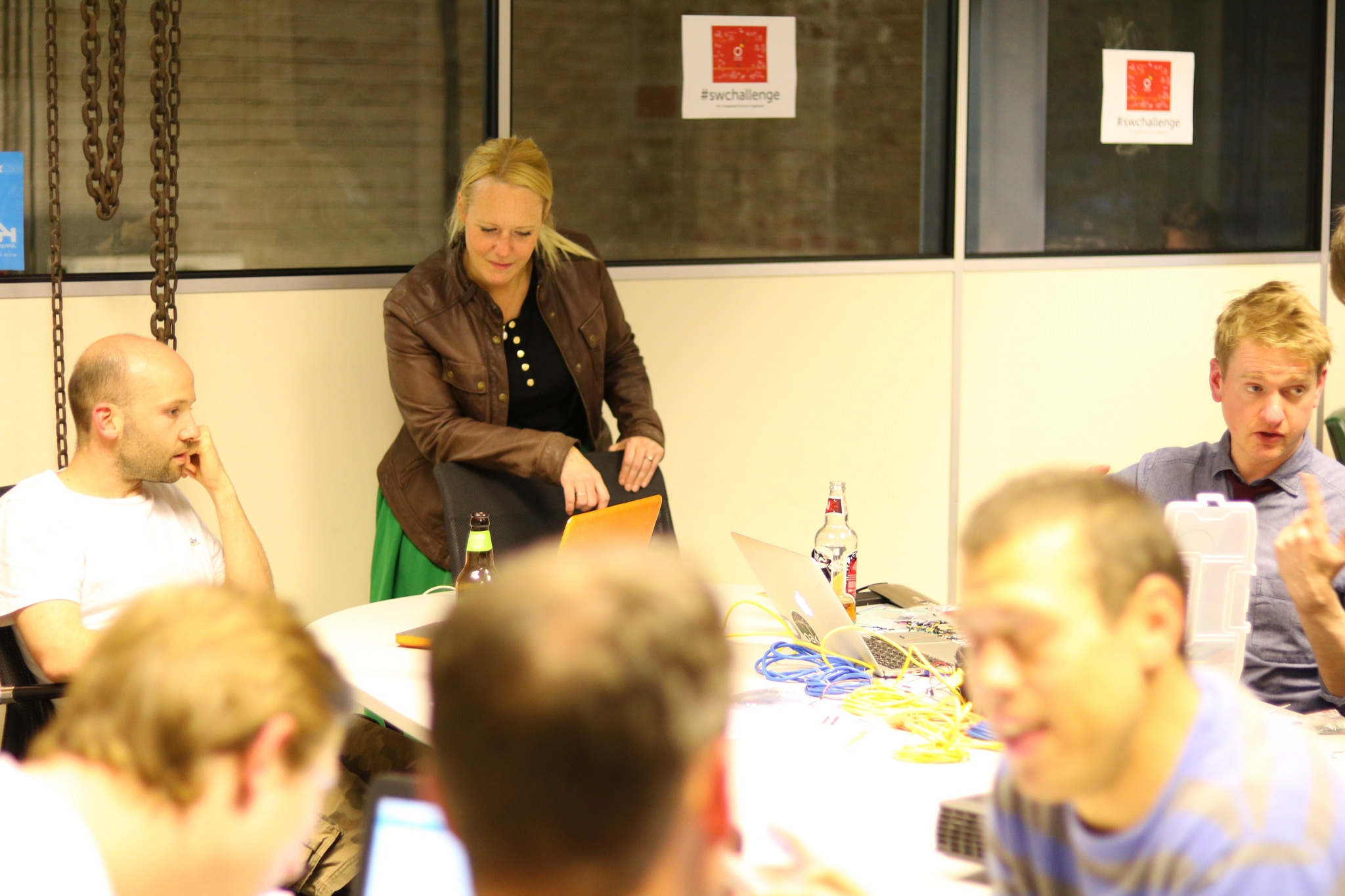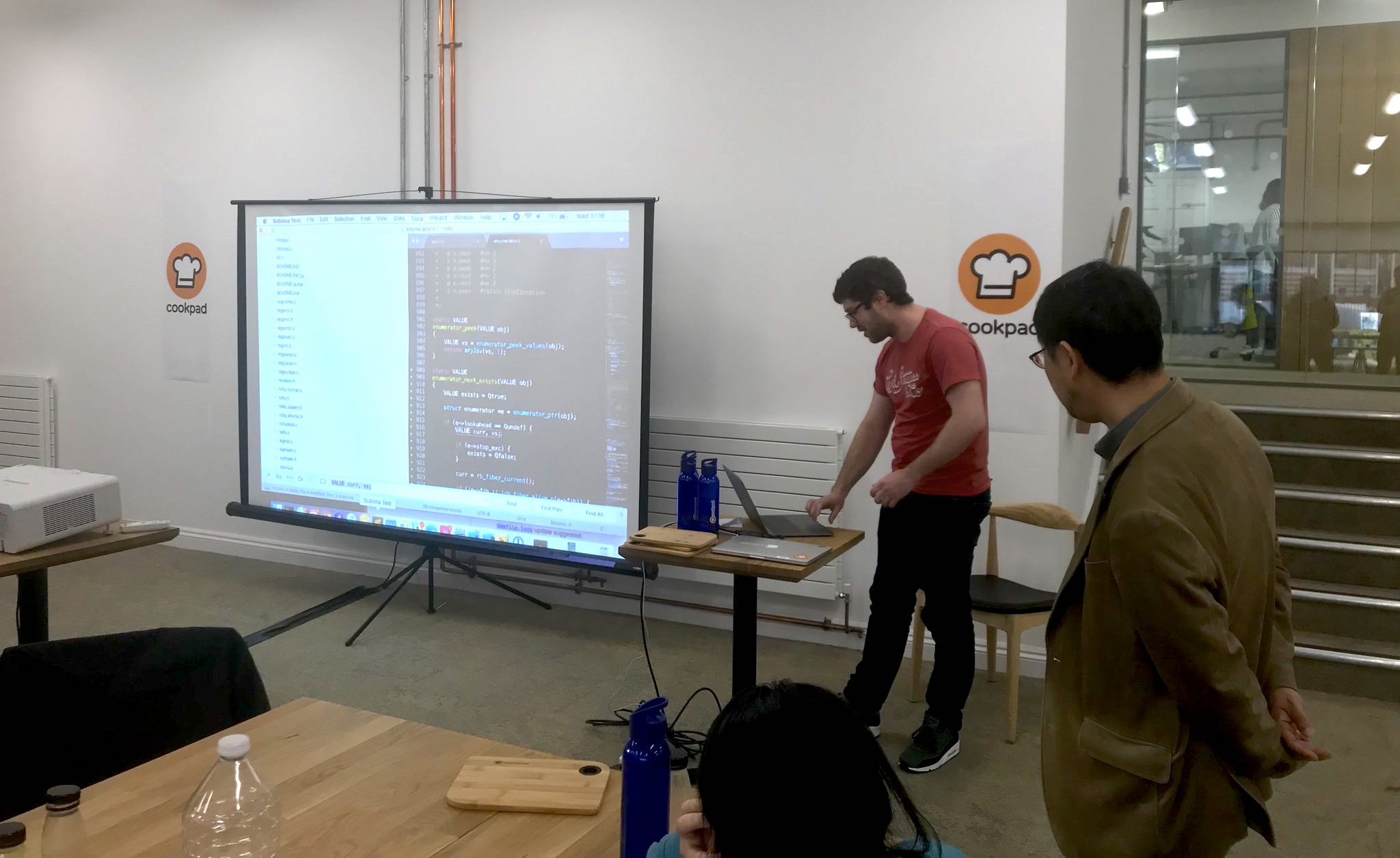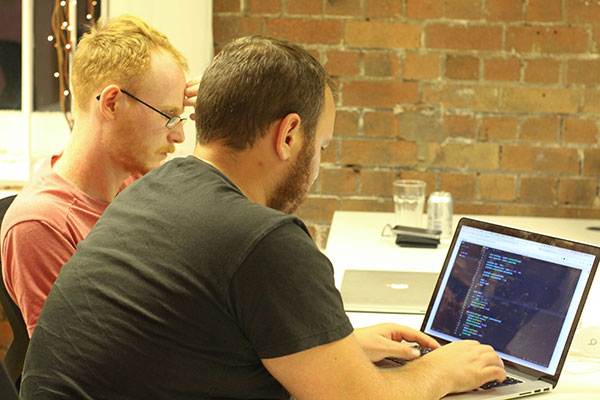As a startup, hiring your first developer can feel like a daunting task. And whether you’re a coder yourself or not, knowing the best way to strike the balance between cost and the stage of your business with the skills and experience of a potential first hire is a delicate one.
But, if you’ve put the right work into your business planning, are at the right stage and have the funds and set-up necessary to take on your first developer, it can also be one of the most exciting moments of independence and growth you’ll experience as a founder.
We regularly work with early-stage startups to build their tech and then, when they’re ready, help them hire their first developer. So we’ve put together what should be four of your key considerations and how to tackle them like a boss so your first developer will be happy, and so will your startup.
When?
The biggest question you should ask yourself before making your first developer hire is whether or not your business is ready to take on a member of technical staff.
Generally speaking, hiring your first developer should only happen when you have solid funding in place – either through investment or organic growth. It’s not just your life and savings on the line at this stage. Your new hire could have their own family to support or mortgage to pay and need to trust that their job will be relatively secure (within the constraints of startup life).
If you have a very specific amount of money or funds, working with an agency where you can ‘pay as you go’ for technical builds and maintenance can be more beneficial. That way you’re not having to pay a full time worker during downtime.
That said, tech wise, you’re likely to be at one of three stages:
- You have little to no tech experience and want to hire a developer to help you build an MVP*
- You’ve worked with another tech company or agency who have built you a solid piece of tech that will serve as the foundation of your business but need a developer to help with everyday maintenance, bug fixes and updates
- You’ve built something yourself (after building an MVP and validating your idea) and need a developer to take it on so you can focus full-time on the business
*If you’ve read number one thinking that you could hire a developer to build a whole app or piece of software from scratch and you’ve not validated your idea or created a basic MVP, you might want to go back to the drawing board.
How?
Recruiting talent in the tech industry is a challenge, even for larger corporations who have shiny benefits packages and competitive salary offerings. They’ll often resort to recruitment agencies which are usually out of reach, budget wise, for startups.
If you can afford some help with recruitment, be wary and don’t be choosing any old agency. Try to look for those that have had some experience in working with startups or who at least have a good understanding of your startup’s mission. If you can get a recommendation from a fellow startup founder, even better.
Luckily, startups are in a unique position to be able to offer something a little different and there is a fair sized community of developers who are keen to be involved in the excitement of having a say on the build of a product from the early-stages, plus the additional flexibility that working for a startup can offer.
With that in mind, accessing this community means that you won’t necessarily have to rely on spending any money on recruitment at all.
A quick search engine scour and a peek at the latest meetup listings and you’ll see that there are a tonne of events, talks and networking sessions that attract other startups and their founders and, in turn, developers looking for new opportunities. And if you don’t meet any developers who are looking for a job, you’re at least likely to build on trusted connections who can recommend someone else.
If you’ve worked with an agency or accelerator in the past, who specialise in working with startups, they’re also likely to know trusted developers who’re regularly on the hunt for these sorts of opportunities. Here at Simpleweb, we’ve helped our startup founders to find the perfect candidates through our own network and experience on several occasions, so it doesn’t hurt to ask.
It’s also worth remembering that talent doesn’t have to be within 10 miles of the office. Visas are expensive but don’t rule out overseas applicants if it’s a viable option with your budget. There’s of course also the option of hiring a remote team. US tech company Doist, whose team is 100% remote, regularly blog about it too. So head there and have a read if this is something you’re considering.
Who?
Developers who are keen to take on the excitement and responsibility of building startup tech usually understand that they’re not going to be on a six figure salary but do be realistic and fair. You’re unlikely to be able to hire a full-stack developer with 10 years experience and offer them a junior developer salary.
But you might be able to hire someone whose had a few years of experience in a very corporate role who’s keen to take a salary hit in exchange for a change of lifestyle and a bit of exciting startup culture.
On the skills front, something to consider when hiring your very first developer is that they do need to be particularly well-rounded. This means that they are not only a competent coder but they should also have some knowledge of how a business runs and exceptional oral and written communication skills.
This is someone you’d happily let chat away to your own clients and investors, who can explain clearly what they’re working on in non-technical and technical terms.
Ideally, a developer that will stick around and thrive in your startup is someone that is also solidly aligned with your startup’s purpose and vision. For example, when we were working with food sharing startup OLIO to find their first two developers, its founders Tessa and Saasha needed to be sure that their new team members were both as passionate about preventing worldwide food waste as they were.
Making your first hire is also the start of creating a team culture based on values, so you want to be sure about what is important to you and your team, and define this clearly from the start. After all, whilst you might want to become ‘the next Uber’, you’ll want to avoid Uber’s million dollar fines that came about partly because of the toe-stepping, hustling values they put in place for their early team.
Keep an eye out for our next blog on values-based hiring coming soon.
What next?
If you already have some tech built (either by yourself or through an agency), don’t forget that it’s not necessarily going to make immediate sense to your new hire, even if they have many years of experience. Make sure you take the time to ensure the code is fully supported with detailed documentation and put a solid chunk of time aside to support your developer as they get used to the code base and how everything slots together.
At Simpleweb, we believe it’s important to not just hand over projects to the startups we work with and let them get on with it. So we often work directly with our early-stage startup’s first developer hires as they get settled, to ensure they have a full understanding of the ins and outs of the project they’ll be taking on full-time.
Okay, so let’s imagine you’re lucky enough to have hired a gem of a first developer, they work hard, understand your vision, talk to your customers and know that growing a business isn’t just about building tech.
At this stage it’s important to remember that it’s all too easy to pile the stresses and strains of the founder lifestyle onto your first member of technical staff, but if you want them to maintain that sense of energy and enthusiasm for your business and avoid burnout you’ll need to have an understanding of the best kind of environment for a developer to thrive in.
It may sound obvious but, having your developer spend half their time on the business, having them deal with continuous tech pivots, dragging them to all your meetings or failing to give them decent periods of uninterrupted coding time, they’re not only going to be stressed but they’re not going to be able to perform at their best.
If your developer is remote, it can be a lonely place where stress can build up quickly. Depending on yours and their situation it might be a better option to have them in a shared workspace with other like minded people so they can learn from others and maintain good mental health.
Although aimed at small teams, many of the tips in our blog on creating a happy environment for developers should give you a head start on ensuring you build a healthy culture from the get-go.
If you’d like to discuss your startup or project, get in touch with Simpleweb today.









